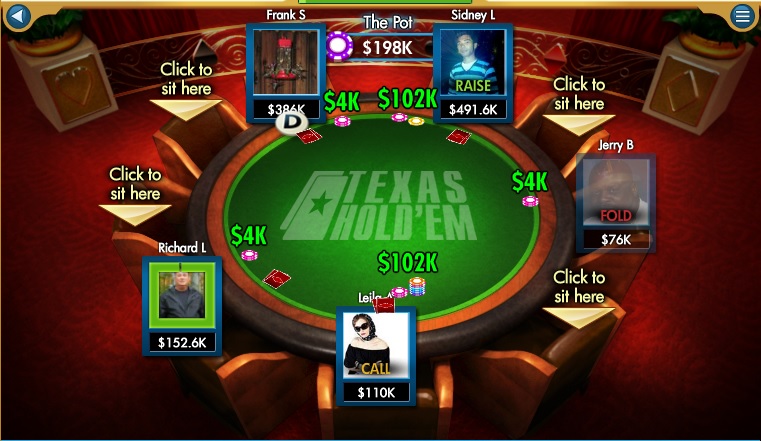How to Make the Transition From Live to Online Poker
Playing poker, a popular American pastime requires players to make decisions on the fly. In fact, the Hollywood film industry in the United States has been making excellent poker movies based on actual events. Whether to fold, check, or raise depends on the current situation at the table, your position, the size of your stack, the size of your bankroll, and your familiarity with the playing styles of the other players. The sum of your knowledge and skill in these areas determines how well you perform.
One such choice that can affect your performance is whether to play live or online poker. Playing poker with actual humans at a real table is vastly different from doing so in a computer-generated online environment. In the end, it's all poker, but it's still to your advantage to familiarize yourself with the subtleties of each game. Let's take a closer look at what a novice to online poker can anticipate.
Getting used to the new gaming system
When comparing online poker to live poker, the most obvious difference is that online poker is played in a virtual environment rather than at a physical table. That's why it's so important to practice using the features and interface of your chosen poker site. You'll soon come to enjoy the many amusing aspects of playing online, like the graphics and animations that display your turn, the size of the pot, and other useful information.
This popular app for online poker allows you to replay hands, take notes, and view a list of other players who are in the money, while Rabbit Hunt displays the number of cards that would have been turned if you had stayed in hand. Add-ons like throwables, emojis, animations, and game sound all contribute to a more engaging experience.
Finance and banking can be handled easily and conveniently online
Once you're comfortable with the poker room's controls, you can move on to real money games. Keeping your bankroll healthy is crucial, but there are some key differences between playing in a live setting and online. This is because, in contrast to physical poker rooms, online poker sites can host a large number of simultaneous real-money poker tournaments in which players can enter as many as they like. Online poker games also tend to be faster-paced. The computer will automatically deal you a new hand when the one you're currently playing is finished. Without having to wait for the dealer to shuffle and pitch, you can quickly check your hand by clicking a button.
In other words, it won't take much extra effort to play more hands per session, raising the stakes and the stakes on your chances of either winning or losing your bankroll. It's a good idea to start playing at a live table with much lower stakes than you're used to in order to practice the self-control necessary to play within your means. If you want to know how much effort and time each table will require, try using two of them at once. You can begin with as few as one table and add more as your system matures and gains reliability.
Things are getting more difficult
There's a generalization that online players are more rash and careless than their in-person counterparts. Given that a given online room can only accommodate a maximum of six players at once, this makes perfect sense. Each player will have to take action more frequently due to the requirement of paying blinds every third hand. If you're used to playing poker in person but want to switch to online play, you'll need to adjust to this. Although it may be difficult, doing so is crucial if you want to succeed.
The lack of face-to-face interaction between players in online games makes them substantially more challenging than their live ring counterparts. This is why online players are notoriously difficult for newcomers because they take the game so seriously. Playing more online poker is a great way to toughen up and solve this problem. The thrill of competition is what makes online poker tournaments so much fun. Online poker tournaments are typically longer and more taxing than their live counterparts because hundreds or even thousands of people can participate. Prepare your mind for long periods of screen time.
Aiming for a Win
Not even the most brilliant poker strategy can help you win if you haven't laid the groundwork for success. Maintaining a steady connection to the web is crucial. Having access to two screens allows you to monitor multiple games at once. Two desktop monitors can be used, or a mobile device and an external display can be used. Make sure you have a comfortable place to sit and play at your desk. Staying too comfortable on the couch while playing can lead to distraction. If you intend to play in a poker tournament for long periods, it is wise to bring snacks and drinks to keep you from getting hungry or dehydrated.
You can keep your focus longer if you listen to music you enjoy. Making sure there are no distractions is essential when discussing focus. Put down the iPad and log out of Twitter. Real-life poker tournaments don't allow for this kind of self-control, so you'll have to work on developing it. It's all worth it in the end because you'll develop the tenacity, dedication, and focus that could carry you all the way to the winner's circle.




Comments
Post a Comment